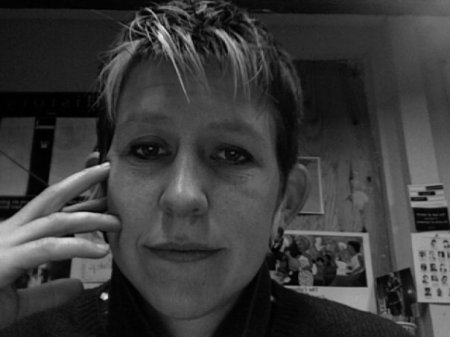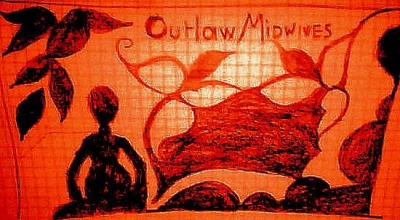fresh
The thing about a leap into revolutionary consciousness: it feels good. It feels so, so good.
I’ve been thinking about this lately as I am 33/ Bay Area/ life of my dreams/ working, working working/ friends, fam, love/ grad school, four jobs, writing, performance, career/ and one of those is one of those Bay Area nonprofit jobs you may have heard of. That people whisper, bitch, moan and complain about. That sounds good on paper, so much so that if you love somewhere else you are like “what the fuck are my Bay Area friends complaining about”. Until you experience it. You get one of those jobs that looks so good on paper, where you are gonna be loved and hired cause of your passion, your brown queer girl or boy genius, your smarts and fashion and drive and deep grounded grassroots intellectual knowledge and all the people you know and all the brilliant ideas you are gonna come up with. And instead it is one of those places that feels like a migraine headache, like someone is squeezing your brain with both hands, like you don’t have business casual business casual enough, like it so dry, like your brain just wanders. Like the words, they look alright on the page (sometimes) but how you got there, how you were used and how it felt when you were-
that
don’t.
And it don’t matter how many fancy brunches they take you too on their dime, it don’t take away from the fact that you need the $500 a month but you ain’t getting anything done, and you feeling traumatized, used, dis or un respected and deeply misunderstood while you doing it.
And not loved.
not loved like you need to be.
We all do different strategies we need to do to survive and thrive. And sometimes that means working jobs we kinda like but kinda hate, or straight up all the way hate cause we know we need cash or connections or they a bridge or it a trade off. but it’s important not to let them limit the power of our imaginations, our wildest black and brown queer and trans girlboy dreams. Because those dreams and our energy are our first resources. Sometimes they are the only things we own.
One of my longterm survival/growth strategies has been to not deal with folks who make me feel like shit or deeply misunderstood/unloved/etc. Some folks call it “living in a bubble.” I call it, QTPOC can’t ever fucking afford to live in a bubble but we can indeed thrive quite well when we have folks who love and get basic important things about us around us. This has looked many different ways. When I was 21, it meant leaving the United Stated on a Greyhound to move to Canada when my full scholarship ran out- to split the country for a city (Toronto) that had queer woman of color, mixed race girls who talked about it, radical South Asians, Sri Lankans, health care, bike lanes, and cheap vegetables. All things I was missing in New York. It meant, after feeling like I was carrying a toxic burden from trying to work as a scared yet fierce 20 year old with white anarchists who didn’t get or respect much of what I was about or believed for a few years, choosing to not work with white-dominated political organizations or scenes for a few years. I was part of that mid-90s wave of punks and anarchist people of color who said fuck this to fighting the same stupid fights about racism, sexism, queerphobia, classism and ablism in spaces we didn’t start, shape or control, and going back home.
After a while, I built up my strength. And there were other kinds of relationships and work, including with white folks who weren’t dumb, that became possible. But I still consciously decide what I let in and what I don’t. SO when a friend was like, “Girl, there were so many whitefolks at Critical Resistence!!! WTF!!!” I say, really? I just noticed all the QTPOC everywhere. And she was like, are you kidding, you didn’t catch the scent of the anarchist armpit? And I go, it wasn’t important to focus my energy on that. You might call it optimism. You might call it self-preservation, or playing to our strengths not our weaknesses. Building ourselves stronger.
There is this thing inside me. It’s that crazy little voice I listen to in the center of my chest. A feminist cliché for sure but I still hang on to it. It my compass, my magnetic north. It tells me where to go. It’s my bullshit detector, inherited from my working-class white and middle-class brown ancestor ladies. My mama saying shit or get off the pot, my grandma who knew what was up in her brownLankan community, family, island, trying to organize, trying not to get married, with all her body. I keep what they gave me, and I add to the recipe. Improvising, experimenting, playing. Always following that pull. Sometimes clearer than others. When I lit out for Canada at 21, it was the path that was all lit up. When I got older, Oya and Kali, they made the choices more complicated. Should I stay in Toronto where I have friends and love and work and an apartment, or pack up everything and move to Oakland because I hunger for QTPOC art peers and I always wonder what it would be like to go back? But I still hold on to her first. She the source of my sanity. And I hold on to her for so long, sometimes I forget how many folks, women of color, queer and trans people of color, we trained to think that voice crazy unimportant. How easy it is to relinquish back into a life of doing what you’re told, staying in grad school when we hate it, buying thing and watching a box not because of joyful relaxation but out of numbing habit.
When I was sitting in that job, I would think of INCITE meetings and Mangos With Chili meetings. Mangos meetings in Cherry’s hot pink living room, painting each other’s toenails and squinting at budgets. Cancelling and rescheduling when we got sick or had a brown girl overscheduled overwhelmed moment. Loaning each other twenty or a hundred bucks when we needed it. Taking turns freaking out, laughing and cracking up, driving two extra-loud no-muffler early 90s Toyotas through east Oakland hills and to the ocean to offer Yemaya a watermelon from Trader Joes. And how it felt like joy. And love.
The thing about the leap into revolutionary consciousness is that it feels gooooooood
good good
good
so so good
Like it feels right and like you are at the fucking center and you can make your dreams real and you can make them real anyway that works for you. Like that if you are a single woman of color single mama with a car that breaks down and you are late for a meeting this is not met with a sniff from someone else/your boss about how there is a lot of “chaos” in your life and this “needs to be looked at” or, worse, ‘you should be more MINDFUL about the CHAOS in your life.” But the meeting, how it happens, how you do the work, gets figured out by you. Like for real, you can do it at your kitchen table. You can use your strengths. Your strengths are not just acknowledged, but understood. A meeting can look like two girls at a kitchen table in east O/ over some wine/ “check in” is an hour when you talk story about your girls and boys, stress, the thing that happened in the Trader Joe’s line, the horrible day job, you rub each others feet, and then shit happens and it’s easy, or it’s not always easy, it’s work, but it’s like pushing out a baby when you’re squatting instead of having your legs in stirrups. Gravity and the natural force of the universe is working with you, you not working against it. Meetings can happen over G Chat. Meetings can happen on skype, at the Laundromat, at 2 AM. If your chronic illness or disability or lack of money means the way the goddamn meeting happens isn’t working, you can switch it up, and all those things are a source of value, the center of the head of the clit of embodied knowledge, not a source of shame.
It feels delicious. It’s not burnout. It’s not without childcare. It’s not dry. You understand what everyone is saying. When you don’t, you can ask and you can talk about it.
This is not to say that there is not argument, not disagreement, not labor, not tired. But the work, the work is your wildest dreams together. Feels like grow. Like life. Like juice. Like more not less. Like we getting some where. Like I never never get tired of saying we at the center, we grow, grow grow. Make our genius on shine. Make what we need, what our fam, our peops, our communities need. And we look so cute when we go it. And it so sexy. So fresh. So wake up smiling and fighting. So beautiful resistance. SO what our ancestors did, what we wanted.
And if mainstream society doesn’t recognize- maybe it don’t matter at all. You don’t know me, but I know you. And I know me, and us, and what I don’t know I can learn. And I/we can be clear about where we putting in energy and work.
Our energy, our flyness, our genius, our dreams, our scar healing salves, our psychic powers, our gardens, they all our resources. We are not just “quadruple jeopardy.” We our own light.
Feels and tastes and looks: just like fresh, fresh water.
The thing about the leap into revolutionary consciousness is it slakes your queer colored girl thirst you had all your life. Just like the freshest river water.
Miracle makers, us. Have been and always will or could be.
–Leah Lakshmi Piepzna-Samarasinha
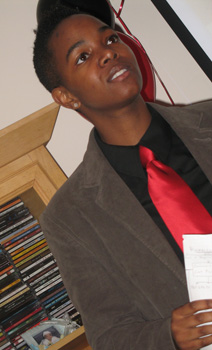



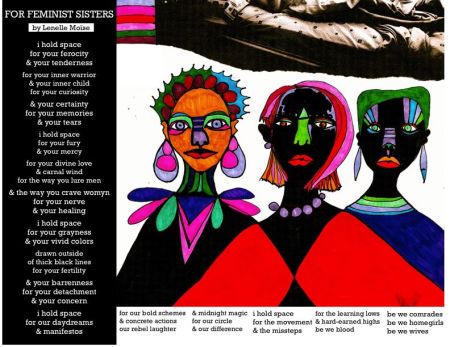
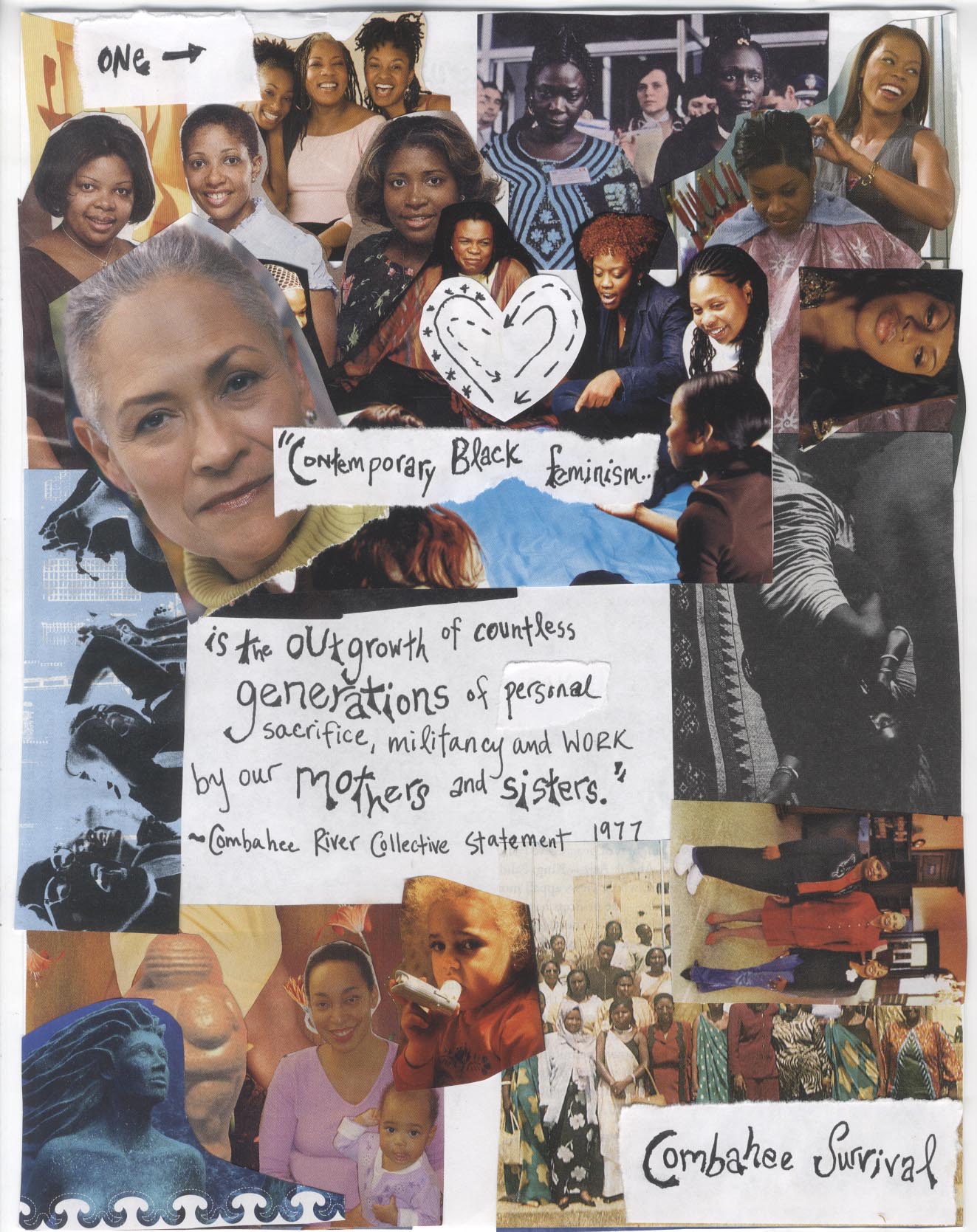


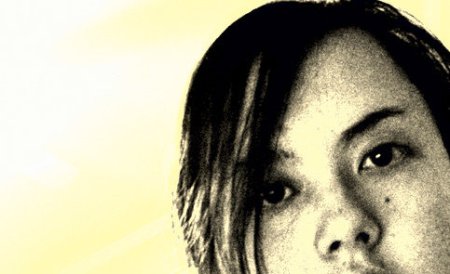
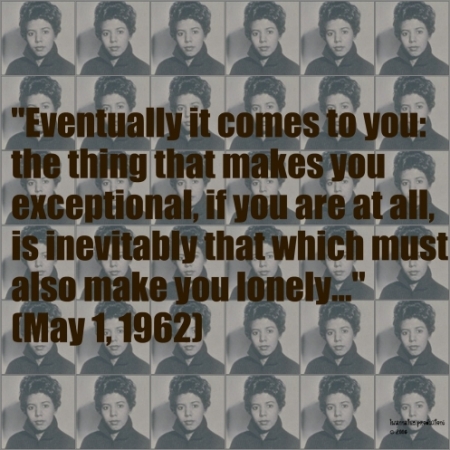


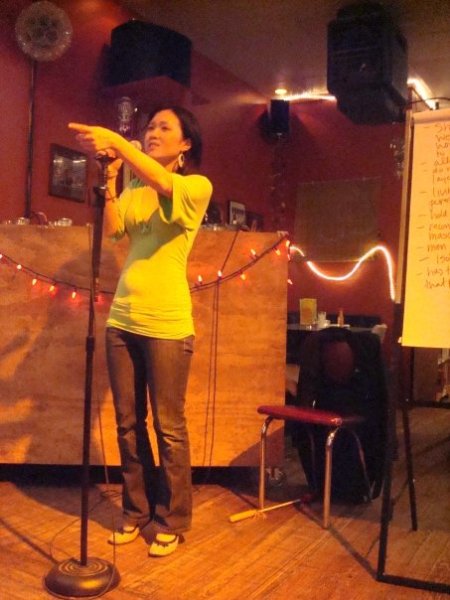
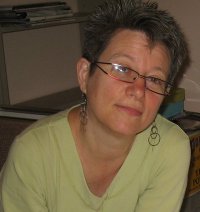
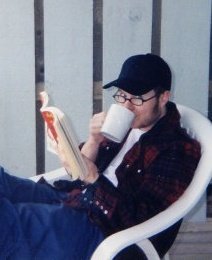
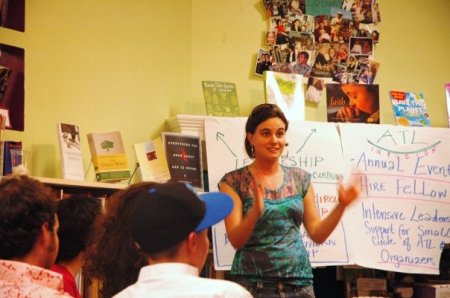


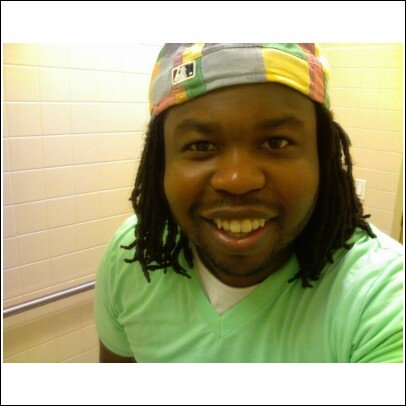
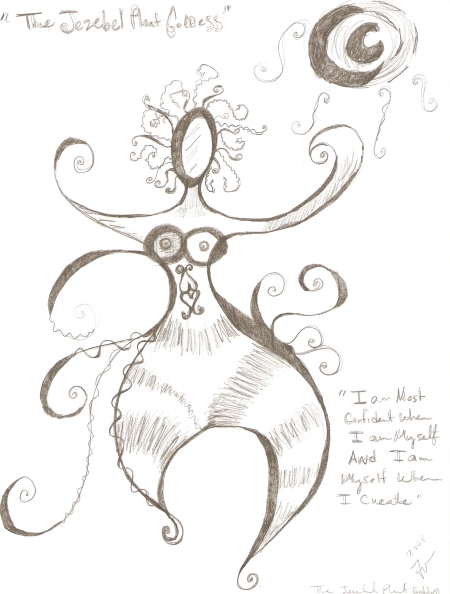
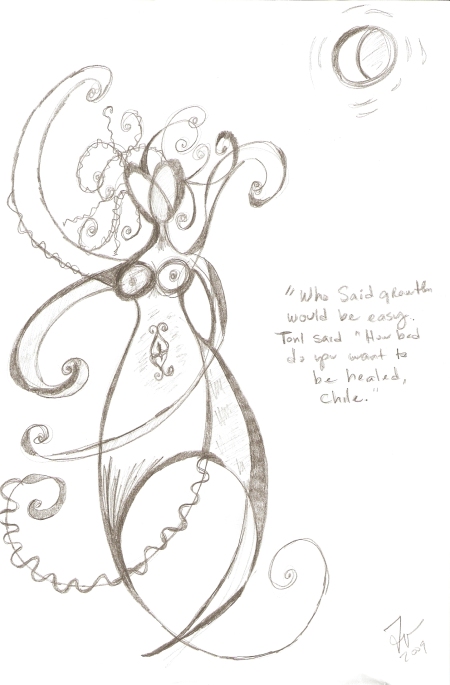
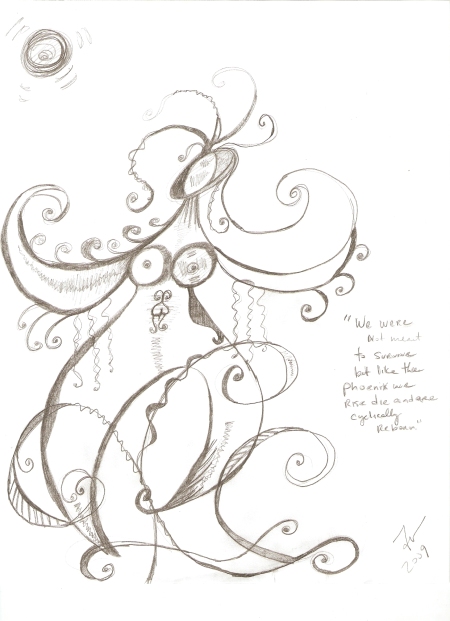


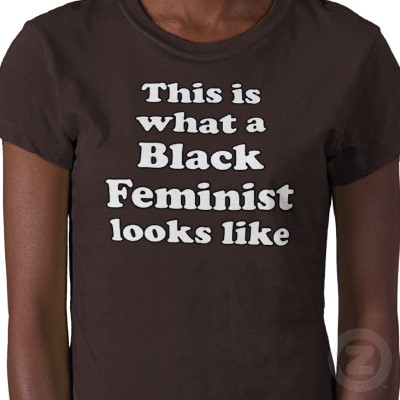

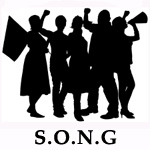
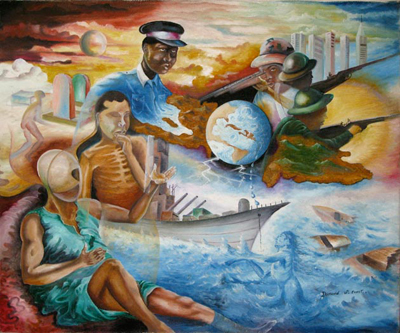
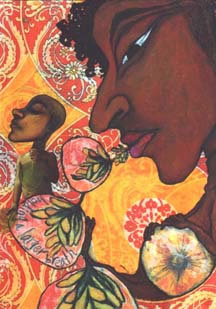
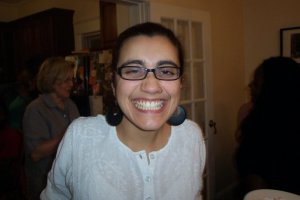
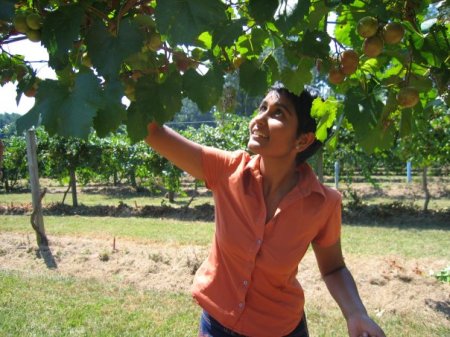

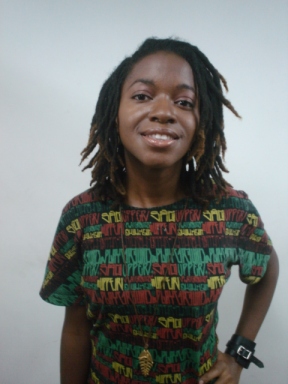
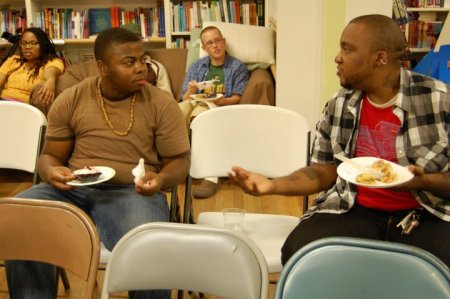
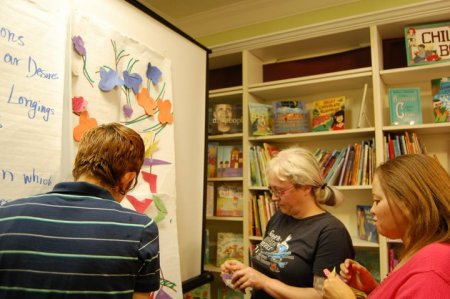
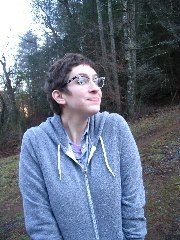

 “We feel that it is absolutely essential to demonstrate the reality of our politics of other Black women and believe that we can do this through writing and distributing our work. The fact that individual Black feminists are living in isolation all over the country, that our own numbers are small, and that we have some skills in writing, printing and publishing makes us want to carry out these kinds of projects as a means of organizing Black feminists as we continue to do political work in coalition with other groups.”
“We feel that it is absolutely essential to demonstrate the reality of our politics of other Black women and believe that we can do this through writing and distributing our work. The fact that individual Black feminists are living in isolation all over the country, that our own numbers are small, and that we have some skills in writing, printing and publishing makes us want to carry out these kinds of projects as a means of organizing Black feminists as we continue to do political work in coalition with other groups.”